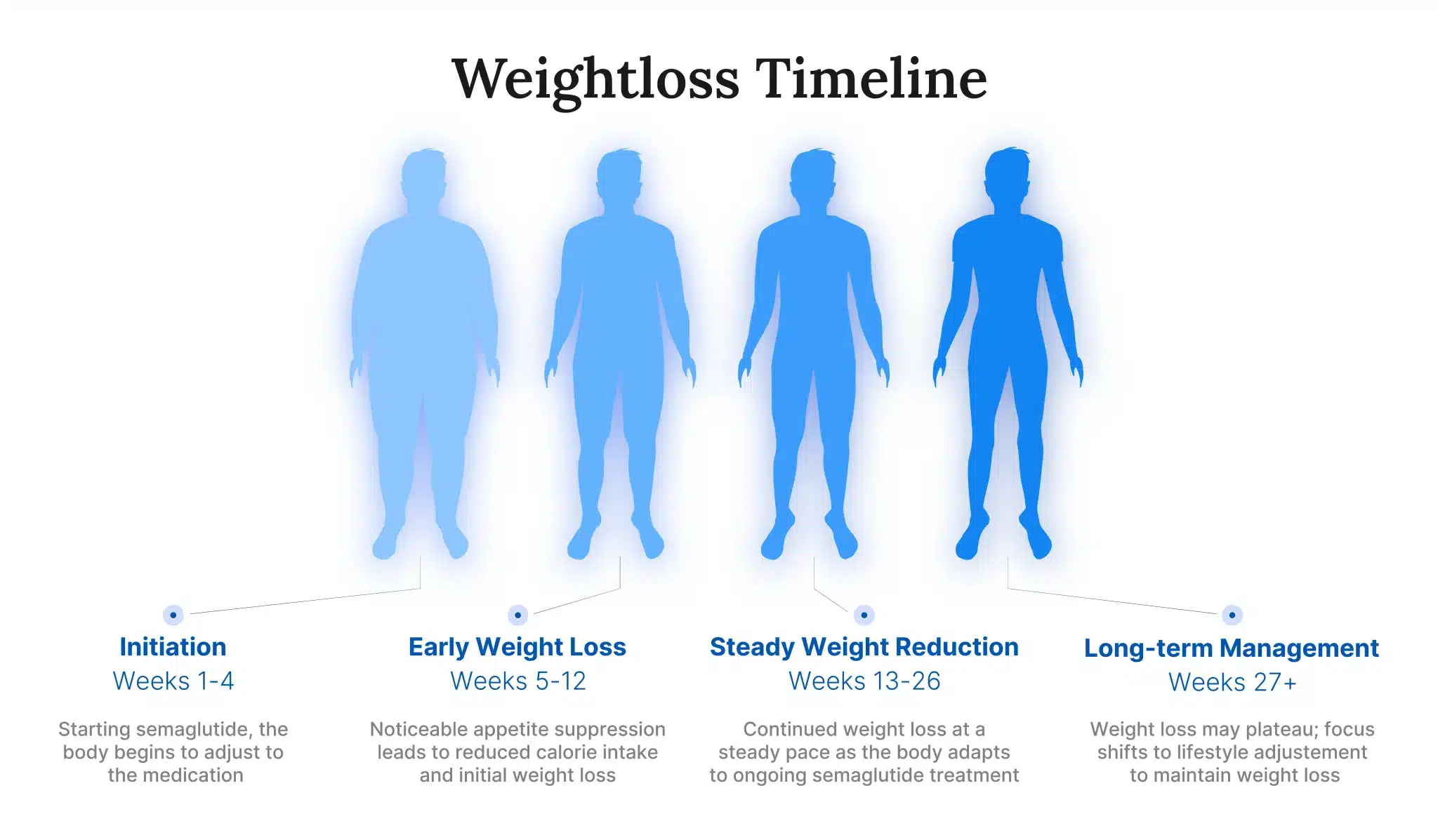Obesity and Diabetes Epidemic
Global obesity and diabetes rates are alarming. In 2016, more than 650 million people were obese, and the percentage of adults over 18 with diabetes nearly doubled from 4.7% in 1980 to 8.5% in 2014. Researchers and doctors are concerned about these trends.
New treatments like Retatrutide help battle these diseases. This clinically trialed drug targets numerous metabolic regulatory pathways and may treat obesity and diabetes. With more information on safety and efficacy of this medication, millions of people with these health issues may have hope.
Obesity increases the risk of type 2 diabetes, cardiovascular disease, and numerous cancers. It can cause mobility issues, mental health issues, and poorer living standards. Conversely, diabetes can cause retinopathy, nephropathy, neuropathy, heart attack, and stroke.
These elements must be controlled to avoid grave effects. Retatrutide targets metabolic control pathways to treat both the symptoms and causes of diabetes and obesity, giving a comprehensive approach to these health conditions.
How Retatrutide Works in the Body
This peptide activates metabolic processes via the glucagon, GIP, and GLP-1 receptors. These receptors boost energy expenditure, glycemic control, and insulin sensitivity. Retatrutide influences appetite, lowering hunger and calorie intake and aiding weight loss.
Retatrutide stimulates GLP-1 and GIP receptors to improve the body’s natural response to elevated blood glucose. This activation promotes glucose-dependent pancreatic insulin synthesis to limit insulin release.

Retatrutide impacts multiple hormonal pathways, providing a more comprehensive approach than typical weight reduction drugs that may only suppress appetite or enhance energy expenditure. The medication reduces hunger, increases insulin sensitivity, and improves glycemic management by targeting GLP-1, GIP, and glucagon receptors.
Triadic receptor activation makes it better at treating the complex relationships that produce obesity and metabolic illnesses. However, some weight loss medicines focus on a particular pathway, limiting their long-term efficacy and benefits.
Retatrutide is unique because of its holistic approach, which increases the likelihood of long-term weight loss and metabolic function.
Efficacy in Weight Loss and Diabetes
Efficacy in Weight Loss
Retatrutide, a GLP-1 receptor agonist, reduces hunger and increases insulin release, causing weight loss. Clinical trials reveal that many people lose 10% or more of their initial weight.
These findings imply that Retatrutide may help treat obesity, giving weight-related health issues hope. More study is needed to understand its long-term efficacy and safety.
Clinical studies have indicated that Retatrutide outperforms other weight-loss medicines in obese patients. This medicine caused 12–15% weight loss, compared to 5–10% for liraglutide and semaglutide.
This peptide also improves metabolic parameters including lipid profiles and glycemic control more consistently. Given this comparative benefit, Retatrutide may help manage obesity-related comorbidities and aid in considerable weight loss.
Impact on Diabetic Patients
Retatrutide significantly lowered participants’ HbA1c levels, a key indicator of long-term blood glucose control. Few reported improved weight control, and a minority had clinically significant weight loss.
These advantages included insulin sensitivity improvements and fasting plasma glucose decreases. Metabolic improvements from this peptide may improve quality of life for many type 2 diabetics.
The non-diabetics’ continuous glucose management kept their HbA1c levels stable, while other metabolic markers improved. Type 2 diabetics saw insulin sensitivity and body fat reductions.
Retatrutide may benefit metabolic health in addition to glucose management because persons without diabetes felt more energized and healthier. These findings suggest the medication’s versatility as a metabolic enhancer may allow more patients to benefit.
Benefits of Retatrutide
Weight Loss Outcomes
It appears that Retatrutide could be a breakthrough for people who are overweight, as it has been shown in clinical trials to significantly lower body weight. In addition to helping with weight loss, the peptide may have further benefits for inflammation, cardiovascular health, and blood sugar management.
This multimodal weight control approach offers Retatrutide as an interesting new weapon in the battle against obesity and its health consequences.
Many patients with type 2 diabetes, hypertension, and dyslipidemia find relief after using Retatrutide and experiencing significant weight loss. Diabetic complications are reduced as a result of glucose control, which lowers HbA1c.
Improving cardiovascular health is a common side effect of reducing inflammation and weight, which in turn improves lipid profiles and blood pressure. These numerous advantages show that this revolution medication has potential as an effective medication for weight loss and overall treatment for obesity.
Improvements in Glycemic Control
Hemoglobin A1c (HbA1c), a vital biomarker used in the management of diabetes, reflects average blood glucose levels over two to three months. Retirutide effectively lowers HbA1C, potentially decreasing the likelihood of retinopathy, neuropathy and cardiovascular complications associated with this condition.
Aside from improving sugar control factors that come along using this peptide extend beyond glycemic measurement alone; its unique mode action supports individuals living with diabetes to maintain excellent health while enjoying an improved quality life overall.
Enhanced response to insulin facilitates improved absorption and utilization of glucose by cells, leading to dual advantages such as reduced levels of blood glucose and decreased need for pancreas-produced insulin.
The betterment in insulin sensitivity contributes towards effective management of diabetes-linked issues like resistance to it. By fostering appropriate action by the hormone, Retatrutide improves metabolic wellness while diminishing coexisting health concerns linked with diabetic patients.
Practical Application and Usage
Retatrutide prescriptions must carefully evaluate patient eligibility and follow dosage and administration instructions. Type 2 diabetes and obesity patients are frequently eligible for Retatrutide, which improves glycemic control and weight management.
Before treating, doctors must review the patient’s medical history, medications, and contraindications. Recommended beginning dose is 5 mg weekly, but tolerance and reactivity can vary. To get optimal therapy outcomes, patients must be monitored for side effects and follow the regimen.
Routine follow-up appointments are needed to assess the patient’s weight loss, glycemic management, and pharmacological response. Monitoring blood glucose, waist circumference, and BMI may indicate therapy efficacy. Healthcare providers may adjust dosage based on patient development and tolerance.
If weight loss or glycemic improvement occurs, the dosage may be adjusted. If the desired outcomes are not achieved, the dosage may be gradually increased while monitoring for side effects. This tailored approach ensures the safest and most successful treatment for each patient.
Integrating Retatrutide with Lifestyle Changes

Fitness regimens should incorporate cardio like walking, running, or cycling and strength training like weightlifting or bodyweight workouts. Strength training builds muscle, which boosts metabolism and weight loss, while aerobic exercises improve cardiovascular health and burn calories.
Retatrutide with exercise change metabolism and fat distribution well. They work together to reduce weight, increase fitness, mood, and vitality, making a healthier living easier.
If ignored, stress, worry, and sadness-related emotional eating can hamper weight loss. Mindfulness, stress-relief, and cognitive-behavioral approaches can detect and manage emotional eating. Friends, family, and professional counseling can also provide emotional support and accountability.
Customized counseling can discover emotional triggers and improve coping. Psychological support systems motivate us to maintain weight loss and mental health.
Role of Retatrutide in Managing Obesity and Diabetes
A novel triple agonist, targets GLP-1, GIP, and glucagon receptors to improve glycemic management and weight loss. The clinical investigations showed considerable weight and HbA1c reductions, which is promising.
Due to its glucose regulation and appetite management, Retatrutide could change therapy paradigms. More long-term safety and efficacy study is needed to ensure long-term benefits without negative effects.
With promising advances like Retatrutide, chronic disease management is changing due to obesity and diabetes therapy advances. New multi-pathway targeting methods like impact on GLP-1, GIP, and glucagon receptors are revolutionizing diabetes-related obesity treatment.
Multi-target methods yield more weight loss and better glycaemic management than monotherapies. Along with this treatment, personalized treatment, digital health tools, and minimally invasive bariatric surgeries are helping diabetic patients overcome obesity. These advances may change therapy paradigms, allowing for more tailored, effective care for interrelated illnesses.



